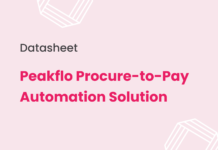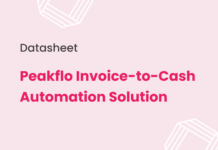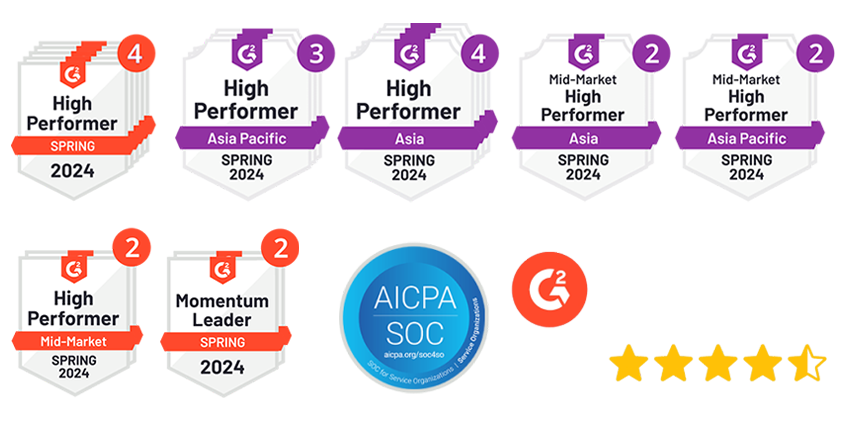Managing finances in large organizations can be overwhelming. Are your financial processes slow and full of errors? Do your teams spend too much time on routine tasks instead of making important decisions? If this sounds familiar, you are not alone. Many large companies face the same problems.
That is where autonomous finance comes in. This approach uses artificial intelligence to automate financial tasks. It helps reduce mistakes, save time, and make smarter decisions. Imagine if your finance team could focus on big-picture goals instead of being stuck on everyday tasks.
In this blog, we will show you how adopting autonomous finance can make your financial operations faster and more efficient.
Keep reading to discover how AI can improve your bottom line and help your company thrive.
What Does Autonomous Finance Mean?
Autonomous finance means using technology to handle routine financial tasks on its own. Instead of having your team do everything manually, autonomous finance systems can take over repetitive jobs, giving your employees more time to focus on important decisions.
Let’s look at an example. Imagine a company that receives hundreds of invoices each day. Normally, employees would need to review each one, spot any mistakes, and enter data into the financial system. This takes time and can lead to errors.
With autonomous finance, the system handles all of that automatically. It checks the invoices for errors, processes them, and even makes payments when needed. This speeds up the whole process, reduces mistakes, and lets your team focus on more important things like planning and strategy.
Did you know? The global market for autonomous finance is set to soar, with expectations to reach USD 56.93 billion by 2030, growing at an impressive annual rate of 16.8% from 2022 to 2030.
What are the Benefits of Autonomous Finance?
Autonomous finance brings many benefits to your company. By using technology to handle routine tasks, your business can work faster, reduce errors, and save money. Here are the key benefits:
1. Improved Efficiency
Autonomous finance makes everything run more smoothly. It automates everyday tasks, like processing invoices or tracking expenses. This saves your team time and lets them focus on more important work.
2. Fewer Mistakes
Mistakes can happen when dealing with numbers and data. However autonomous finance reduces this risk. The system checks everything automatically, so you get more accurate results without needing extra corrections.
3. Cost Savings
Automating tasks helps cut costs. Your company spends less money on manual work and reduces errors that could cost time and money to fix. Employees can focus on high-value tasks that help the business grow.
4. Faster Decisions
With autonomous finance, your company can make decisions faster. The system provides real-time data, so you have the information you need right away. This means quicker decisions that can improve your company’s performance.
5. Better Insights into Your Finances
The system uses data to give you clear insights. It helps you understand financial trends, so you can plan better for the future. This makes budgeting and forecasting easier and more accurate.
6. Stronger Security and Compliance
Autonomous finance also improves security. It uses technologies like blockchain to protect financial data. This helps keep your company’s information safe and ensures you follow all legal rules.
Key Components of Autonomous Finance
Understanding how autonomous finance works helps break it down into the key parts that make everything run smoothly. These are the building blocks that allow the system to automate tasks, improve decision-making, and save your company time and money. Let us explore them in detail below.
1. Data and Analytics
Data is at the heart of every financial decision. With autonomous finance, companies can rely on real-time data to guide their decisions. Advanced analytics help uncover patterns, predict future trends, and make sense of large amounts of information. This means quicker, smarter decisions based on facts, not guesswork.
2. Machine Learning
While the system does not “think” like a person, machine learning helps it improve over time. The system learns to make better predictions and recommendations by looking at past data and outcomes. For example, it can adjust financial forecasts based on how things have changed in the past or suggest changes to the budget when needed.
3. Cloud Technology
Cloud technology makes it easier to manage and access financial data from anywhere. It’s flexible, scalable, and allows teams to work together even if they are in different locations. The cloud reduces the need for expensive physical infrastructure and makes it simple to expand your financial systems as your company grows.
4. Blockchain for Security
Blockchain technology adds an extra layer of security by keeping financial transactions transparent and secure. It is a decentralized system that records every transaction, making it much harder to alter or tamper with data. This is especially important for large companies that need to ensure compliance and protect against fraud.
5. Digital Talent
A crucial part of autonomous finance is having the right talent to manage and optimize these technologies. Digital talent refers to people with the skills to work with advanced systems, understand data, and help your business make the most of automation tools. As technology changes, having the right people who can guide and innovate within these systems is essential for long-term success.
6. AI Agents
AI Agents play an important role in making financial tasks faster and more accurate. These smart systems work with human teams, learning from your business processes, contextually understanding them, and executing the processes autonomously. They also give useful recommendations based on what they learn. AI Agents can intelligently handle various tasks, like entering data, processing invoices, and reconciling accounts. This allows your team to focus on more important decisions and improves the speed and accuracy of financial work.
How to Implement Autonomous Finance?
Implementing autonomous finance can transform your company’s financial operations. Following a clear, step-by-step process can ensure a smooth transition to this new way of working. Here is how to get started:
1. Assess Your Current Financial Processes
Before making any changes, take a close look at your current financial systems. Identify tasks that are repetitive, time-consuming, and prone to errors. This will help you determine which areas will benefit most from automation.
2. Set Clear Goals
Define what you want to achieve with autonomous finance. Do you want to save time, reduce errors, or improve decision-making? Setting clear goals will guide your implementation process and help you measure success.
3. Choose the Right Technology
Find the tools and systems that will best meet your needs. Look for solutions that offer automation, data analysis, and security. Make sure the technology can integrate with your existing financial systems, so the transition is smooth.
4. Train Your Team
Even though autonomous finance automates many tasks, your team still needs to be involved. Provide training on how the new system works and how it will impact their roles. This will help them feel more comfortable with the changes and ready to use the new tools.
5. Start Small and Scale Up
Begin by implementing autonomous finance in one area of your business, such as invoice processing or expense tracking. Once you see the benefits, expand to areas like budgeting, forecasting, or reporting.
6. Monitor and Adjust
After implementing autonomous finance, monitor how it’s working. Are you seeing improvements in efficiency, accuracy, and cost savings? If needed, make adjustments to ensure the system is meeting your goals.
7. Ensure Ongoing Support
Continuous support is key to long-term success. Have a dedicated team or partner available to resolve any issues or answer questions. Regular updates and improvements will keep your system running smoothly.
Roles and Benefits for Finance Professionals
Autonomous finance is making a big difference in the finance world, helping professionals work smarter, faster, and with more accuracy. Here’s how different teams can benefit from these changes:
1. CFOs, FP&A, and Accounting Teams: Planning and Budgeting
CFOs and finance teams can now plan and budget more easily. With autonomous finance, they can complete tasks quickly and accurately, making it easier to manage the company’s finances.
- Better Financial Planning:
Autonomous finance tools help CFOs create financial plans that adjust automatically. These plans are always based on real-time data, so they stay current and useful.
These systems track money coming in and going out. They help make sure there’s enough cash available for important business needs.
- Faster, Smarter Decisions:
CFOs can now make quicker decisions. With data-driven insights, they know exactly what’s happening and can plan with more confidence.
2. Corporate Finance: Automated Risk Assessments
Risk is a part of every business, but autonomous finance helps corporate finance teams spot problems early. It lets them take action before small issues turn into big ones.
- Real-Time Risk Monitoring:
Autonomous systems watch financial data all the time. They can find risks right away and help teams respond quickly to fix them.
- Predicting Risks Early:
The system looks at patterns in the data and helps predict risks. This gives teams time to prepare before problems happen.
- Simplified Compliance:
Autonomous finance also makes sure that financial rules are followed. It tracks everything to help teams stay compliant with regulations.
3. Investors and Financial Institutions: Optimizing Financial Health
Investors and financial institutions can use autonomous finance to make better decisions. These systems help them keep track of their financial health and make smart moves.
- Better Portfolio Management:
Investors can check how their investments are doing in real time. If needed, they can make changes quickly to keep their goals on track.
- Accurate Credit Risk Assessments:
Financial institutions can assess the risk of lending money to people. They use autonomous systems to get a clearer picture of whether someone will pay back their loan.
- Preventing Fraud:
Autonomous systems look for signs of fraud by checking transaction patterns. This helps catch bad activity early and keep financial transactions safe.
How Peakflo Helps with Autonomous Finance in Organizations?
Autonomous finance means letting AI take care of your financial processes. With Peakflo’s Agentic Workflows, tasks like invoicing, payments, and reconciliations happen automatically. This makes everything smoother and faster. Your team doesn’t have to worry about small tasks anymore, and they can focus on bigger decisions.
Here’s how Peakflo’s Agentic Workflows help:
1. Customizable to Your Team’s Needs
Peakflo AI Agents fit perfectly with your team’s processes. They adapt to your workflow, so you don’t have to change how you work. This means automation works with you, reducing the need for manual work by up to 95%.
2. Making Complex Tasks Simple
Peakflo handles everything from Accounts Payable (AP) to Accounts Receivable (AR). It even works in industries like manufacturing and logistics. AI does tasks like matching purchase orders or sending payment reminders. Your team doesn’t have to waste time on these anymore—they can focus on improving cash flow and forecasting.
3. Learning as It Goes
Peakflo AI doesn’t just do tasks—it learns. The more it’s used, the better it gets. It adapts to the unique ways your business works, making everything even more accurate and efficient over time. This keeps your financial processes flexible and up-to-date as your company grows.
4. Works for Every Industry
Whether you’re in logistics, manufacturing, food and beverage, or construction, Peakflo’s AI works for all industries. It helps with tasks like invoice matching and payment reminders. It’s like having a financial assistant that always works hard, never makes mistakes, and improves your business processes.
Conclusion
To sum up, autonomous finance makes financial tasks simpler, faster, and more accurate. Peakflo helps organizations streamline their accounts payable and receivable processes, making it easier to manage finances.
Want to see how it can work for you? Take a demo tour of Peakflo and see the difference for yourself.










![Why AI Sales Calls Are Making Good Sales Reps Even Better [2025 Guide] ai sales calls](https://blog.peakflo.co/wp-content/uploads/2025/09/65168cf6-3001-4733-8cbc-12d5684cf449-218x150.webp)


































